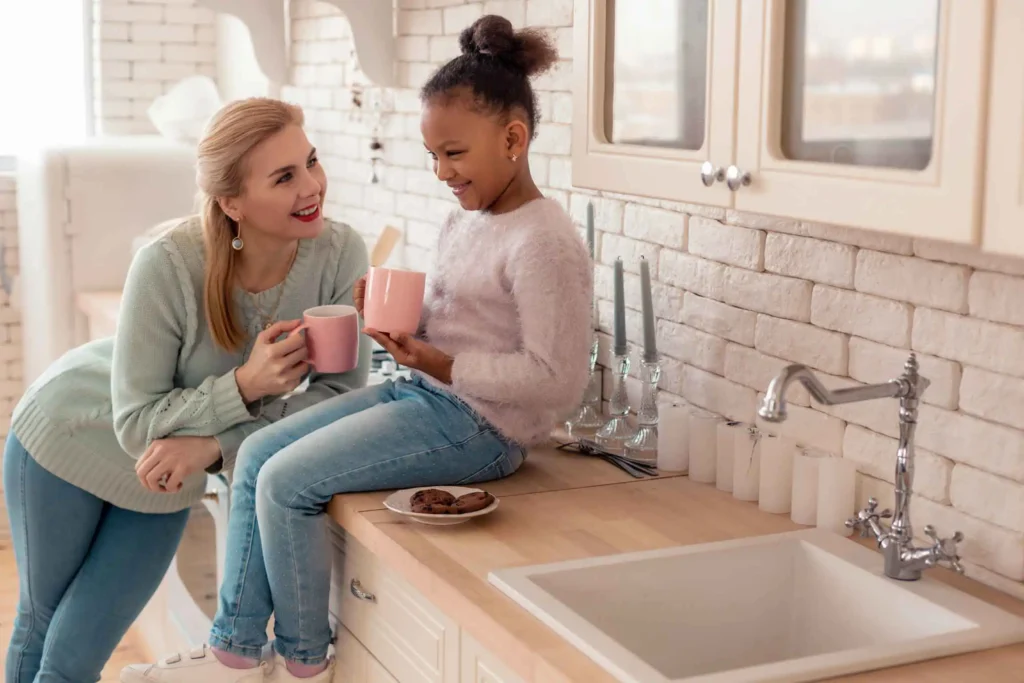In times past, people who didn’t fit within the traditional roles or confines of society could be denied the opportunity to foster or adopt children, simply because of ignorance and bigotry. Rules were very strict and could even go so far as to insist that children being placed in foster care or adopted must have been born into the same faith or religious tradition as the adoptive parents.
As the American population has changed and societal norms have shifted, more and more adults from all kinds of backgrounds are saying “yes” to becoming a foster parent. You might be a non-traditional individual and wonder if your identity or lifestyle would allow you to become a successful foster parent. The answer in many cases is a resounding yes, you would. Because a loving foster family is made from love, and not labels.
Traditional Families
Married couples with or without children are welcome to apply to become foster parents. If you are part of a traditional household and have children already, adding foster children to your family can mean new and wonderful opportunities to bond with each other and expand your worldview. Foster kids may come from difficult circumstances but can bring lots of fun and healthy challenges that help everyone in your family to grow.
Single Adults
Whether single, divorced, widowed or otherwise “uncoupled,” single adults who wish to become foster parents have every opportunity to apply if they meet the requirements for fostering. Historically, single people were excluded from the possibility of foster care because it was believed there needed to be two parents to look after children successfully. The truth is, nearly 24 million children in the United States live in a single parent family. Many kids (including foster kids) thrive in single adult-led households. Being part of a couple is not a necessary requirement to become a successful foster parent.
LGBTQ+ People & Households
With the rise of the LGBTQ+ visibility and rights, many individuals within this community have formed wonderful foster families. In fact, LGBTQ+ people are 7 times more likely to become foster or adoptive parents than their heterosexual counterparts. Since the Stonewall riots in 1969, gay, lesbian, bisexual and transgender rights have progressed slowly but surely. This progress includes shifting societal norms, greater general acceptance of queer and questioning individuals, and the ability of LGBTQ+ people to participate in community supporting programs like foster care.
Non-Religious Adults
Some children are raised in rich and affirming religious or spiritual traditions that are a foundational part of who they become. However, many are unwillingly subjected to negative experiences when it comes to religion and choose to walk a non-religious path as adults. Whatever the reason for walking a purely secular path, non-belief in religious doctrine is in no way an obstacle to becoming a successful foster parent. What matters most is a strong desire to help a child in need, having the means to do so, and a willingness to grow into that role.
Foster Kids Have Unique Identities, Too
Children in foster care are just as unique in how they identify as the parents that care for them every day. To be sure, having a caregiver that may share in their uniqueness helps a child to cope and share themselves and their gifts with the world around them. As children get older, they become more aware of their identities, whether racially, culturally, and as teenagers, some of them possibly as LGBTQ+ youth. Looking up to foster parents who appreciate and understand being different can strengthen the bond between child and parent, and ultimately give children a greater sense of confidence in who they are as well.
Love is the Common Thread of Healthy Foster Families
If we think of family as a patchwork quilt, there are no real “rules” to follow in terms of how it all comes together. Individual pieces of fabric, just like people, are threaded together to form a whole, cohesive unit bonded with love. How you identify is an important aspect of who you are as a person and adds to your character and uniqueness. The qualities that make you a good candidate for being a foster parent are patience, kindness, and a desire to help others. Because it’s always a big-hearted person who becomes a foster parent, not a “label.”

